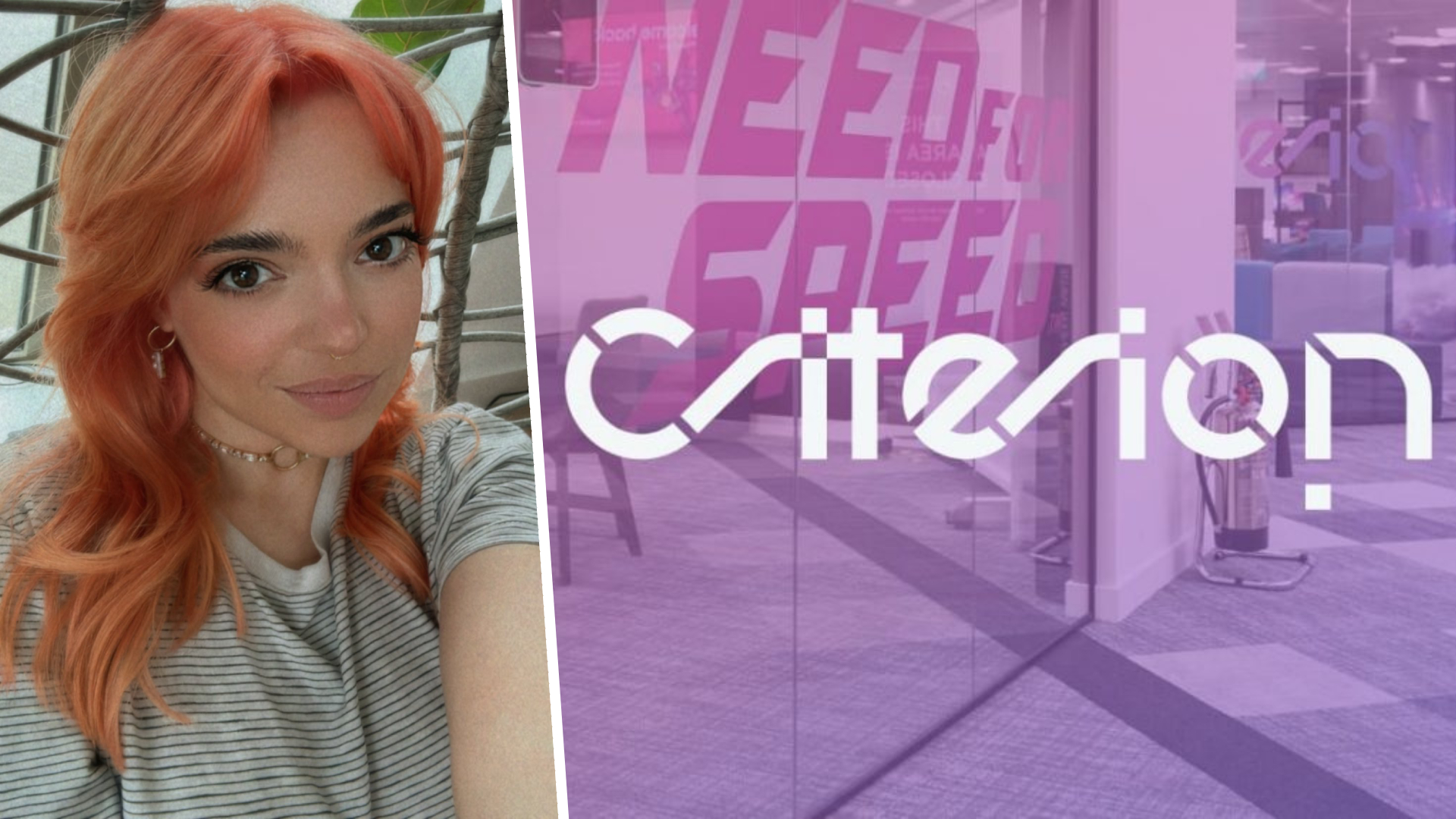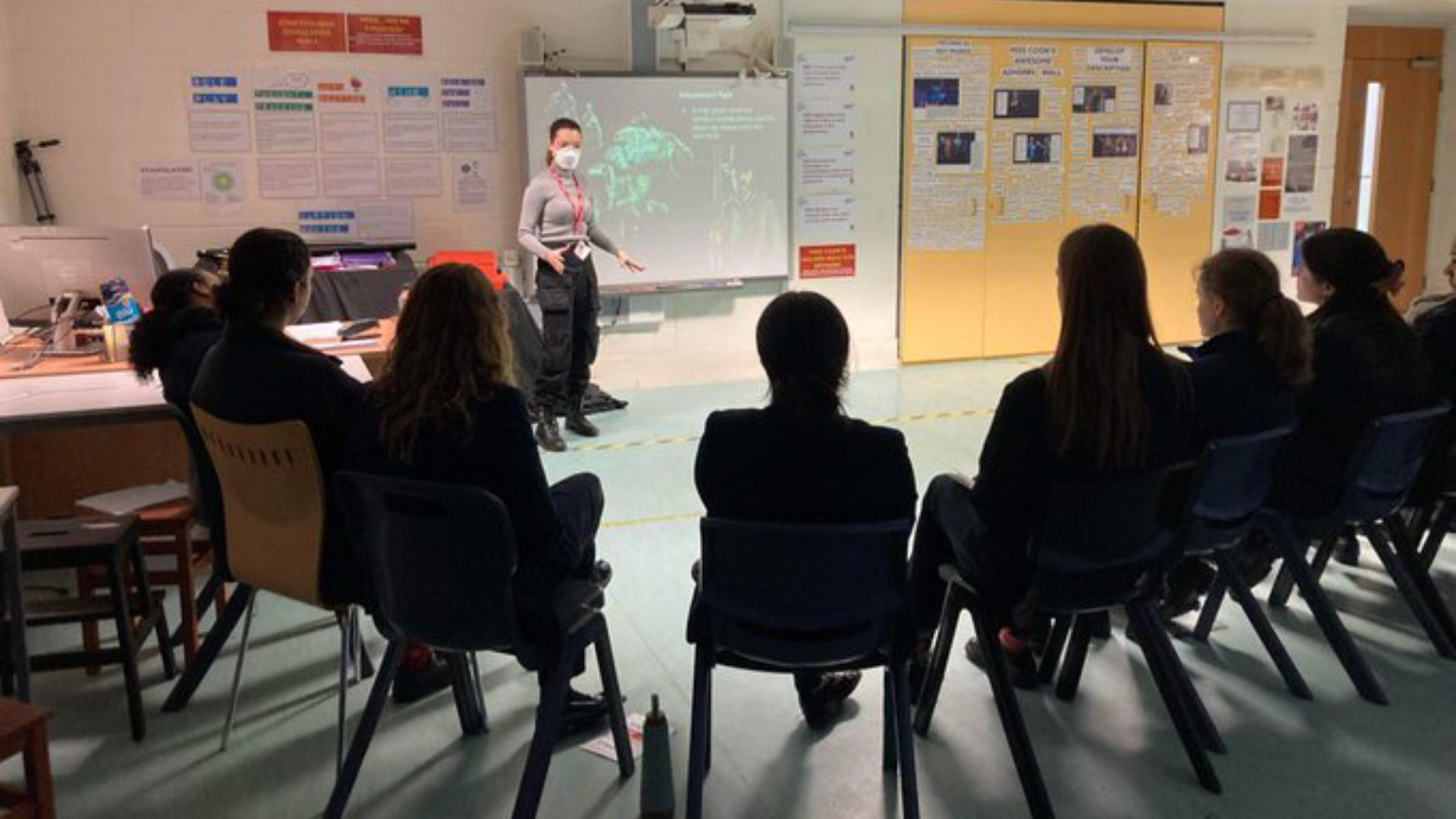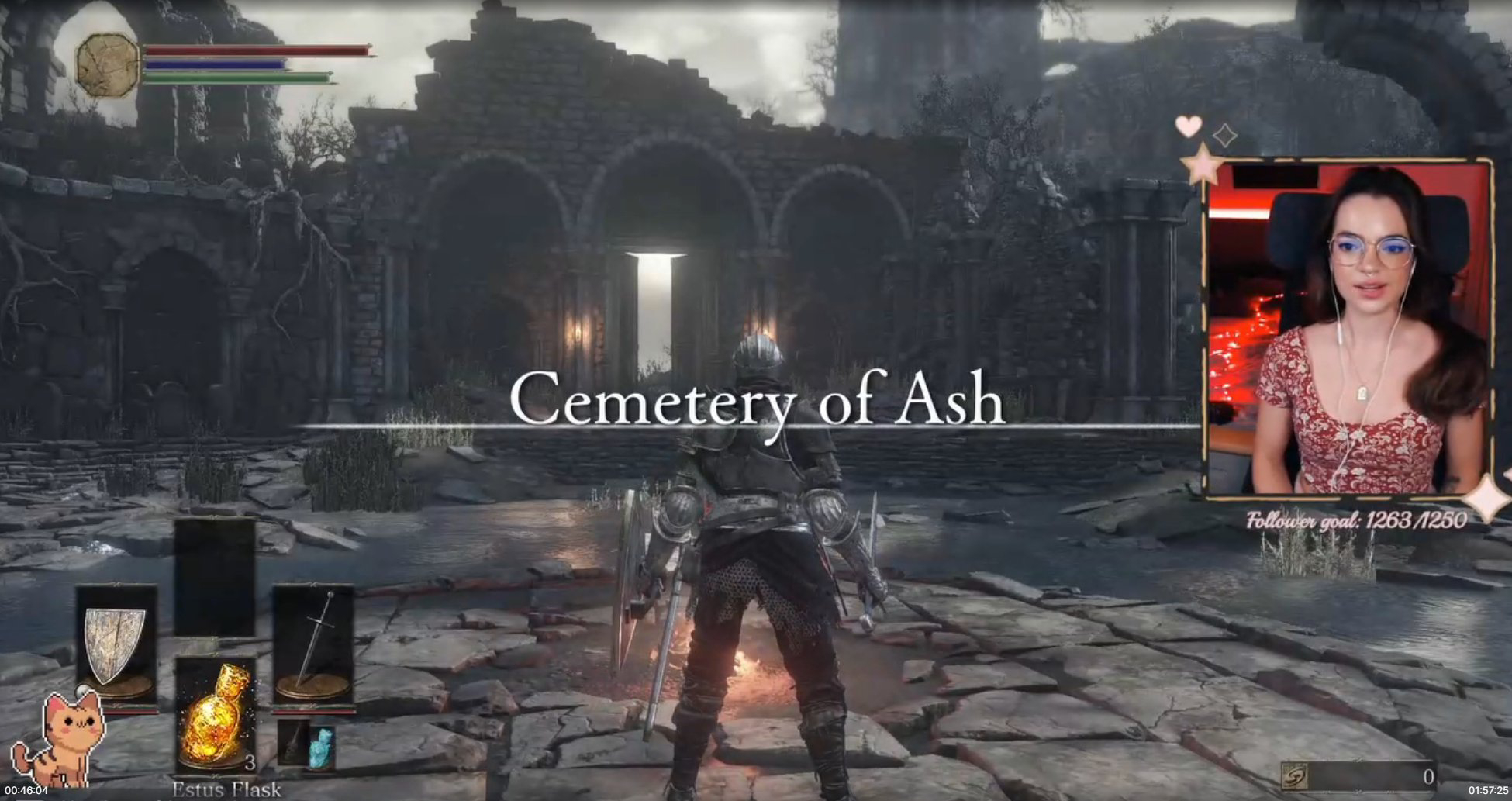Franciska, Criterion's new hungarian developer, talks about her career and her dream game
Interview with one of the most talented Hungarian game developer, Franciska Csongrady.
Interview with one of the most talented Hungarian game developer, Franciska Csongrady.
Interview with one of the most talented Hungarian game developer, Franciska Csongrady.
In May, Criterion Games added an incredibly talented and ambitious hungarian developer, Franciska Csongrády, to its professional staff. It’s a huge success for Hungarian game developers, and no less so for female game developers. That’s why we felt it necessary to ask her about her career, where she started and where she is going, what she thinks about the position of women in the games industry, what and who inspires her, and even her dream game.
There is no doubt that Franciska is one of the most talented game developers of hungarian origin, who was also included in Forbes’ „30 successful hungarians under 30” list in 2022. She has already worked for several studios of all sizes, and will soon be releasing two new games in which she was heavily involved: one of them she co-designed with Primal Game Studios in Budapest, and the other one she made with Moon Studios in Austria. Now, she is working as a narrative designer for Need for Speed, and previously for the legendary Burnout.
She hopes her story will inspire young creatives, especially women.

Maybe it’s because I watch a lot of Partizan, but I think we should start the conversation with your video game background. What was your earliest defining gaming experience?
It’s probably Zoo Tycoon, which I played a lot as a kid. Frontier, by the way, makes a zoo game similar to Zoo Tycoon, and I got an offer from them, but Criterion’s was better, so I didn’t end up going the Planet Zoo route. But I loved that game as a kid, it really stuck with me.
So is that actually what made you fall in love with video games? Did Zoo Tycoon open the door to the world of games for you?
I’m sure it did, but I never really played that much as a kid. It really came in my teens, my first games console was a PlayStation 3, before that I was playing browser games on my computer.
The first serious game that really made me think that I wanted to do that, that I was interested in that direction, was The Witcher 3. It was the first game I bought for myself with my own money. I remember the story really captivated me, but it was the side quest stories that really impressed me and got me interested.
Well, no one has managed to create a programme quite like it since then. Does that inspire you on your writing journey? Is that why you started writing?
Yes. The Witcher 3 is very special to me in that way. Although I didn’t know at the time that there was such a thing as Narrative Designer, which is a bit different from traditional writing.
I’m more concerned with how the story can be conveyed to the player through design, art, or even music. I always think of it like a big orchestra, where all the elements have to work together to create something beautiful. If you look at it from a story point of view, I’m actually the one who puts it all together. The writing is obviously an important part of it, because there’s dialogue and other elements, but it’s only one part of the big picture.
Speaking of story! I posted the news that you were going to be the new narrative designer/writer for Criterion Games, and I read a bunch of negative comments in several places below saying „but Need for Speed doesn’t have a story” and you won’t have much to do there anyway.
Well, all I can say is that the past should not determine the future. Sure, the very first Need for Speed games may have put less emphasis on story, but I think the series has come a long way in that regard.
I was also interested in this work because I think Need for Speed has a lot of exciting story potential, especially now that it boasts such a vibrant open world. So I see absolutely no reason why you can’t add all sorts of exciting things to its world – like in Red Dead, which is full of a lot of smaller and bigger stories.
I don’t want to give anything away, but I’m sure there will be no shortage of stories, in fact! And I actually feel that Criterion might be open to it, which is evident from the fact that they hired me.
By the way, in some of the previous games you’ve worked on, you didn’t try to tell a story with dialogue dialogue or text, but rather with visuals, sounds and music. Will you be doing something similar for Criterion?
I wouldn’t necessarily say that there won’t be an emphasis on dialogue here. It’s true that dialogue played less of a role in Ori (Ori and the Will of the Wisps), but I’ve also been working on their newer game (soon to be revealed – editor’s note), for example, which will be a completely different game from their previous titles.
But I actually joined the development of Ori later, in the last 6-7 months, so I didn’t have much chance to change things there. But on their latest game, I’ve been working a lot, I’ve contributed a lot to the story, and there’s a lot of dialogue in that game. It’s going to be an ARPG, I think they’ve already told me that, so maybe I’m allowed to say that.
I’m not going to be the one writing all the dialogue at Criterion, of course, because there’s a writer at the studio who’s just doing that, but of course you can’t separate it from the narrative designer, from me. I’ll be there for the readings, we’ll go over together whether the material is good, what needs to be changed/improved, etc.

We’ve talked before about your desire to inspire younger girls in game development, and going back to your first console, the PS3, I think it’s really interesting that that’s the console (and generation) that has seen the release of some of the most influential and popular games that are still running today, designed, written and directed by women. For example, Uncharted, which was produced by Amy Henning, or Assassin’s Creed, which was produced by Jade Raymond. How motivated are you by female developers like them?
Very much so! Aside from Uncharted, I was also impressed by a more recent game, Outer Wilds, written by Kelsey Beachum, which turned out to be an incredible game – and one that I recommend to everyone!
However, it’s really important that girls see it as a possible pitch. I, for one, didn’t even know for a long time that narrative design was an existing thing, a valid direction. When I was at university, for example, I thought a lot about video games and how they could be made, and then I decided to write my thesis on narrative in games. But the people who decided what I could write my thesis about didn’t think so, games could be quite literary.
I think this is absolute nonsense! So on the one hand, it’s really important to me that girls know that this is a direction, but more people should take games more seriously as a medium, which can have literary depth.
So for you it’s also an artistic outlet?
Absolutely, yes.
In fact, although it’s a younger art form than many others, I think it would be worth teaching children about games in school. Recently, for example, on International Women’s Day, I was invited to my old primary school to give a talk to the little girls about toys and writing. It was very interesting, because many people still think of games as such, like Fifa or CoD, but there are so many works in which story, dialogue, etc., play a prominent role, and it makes sense to study this medium as an existing art form, even one with literary depth.
Well, yes, there is Hades, for example, which was the first game to win a literary prize (Hugo).
Oh, Hades, I love that game!

„Ok, I’m playing Dark Souls here”
I have to go back, but how did you become a narrative designer in the games industry? When and how did you know it was a thing and why did you decide to do it?
Well, if you go back to the very beginning, when I was very little, my grandfather was the director of the Ballet Institute and I was often backstage with him. That’s where I learned that there’s always a much bigger work behind the visible surface that’s exposed to the audience, which fascinated me even as a child. Maybe that’s why I’m attracted to backstage work, but for a long time I thought I could only be a writer, I didn’t know about narrative design.
I got into it through a good family friend who works as a design director at DICE in Sweden. I managed to talk to him and I told him that I wanted to work in the games industry, but I didn’t know where to start because I wanted to do a little bit more than writing. I’m more interested in how to tell a story with all the elements of a game, and he told me
„ooh, that sounds like narrative design”.
Now that’s when I really pricked up my ears. Before that, I was thinking of becoming a conceptual artist because I’d learned to draw and animate, but I was reluctant to do that because I thought it would be very difficult for me to get into that. But narrative design then really appealed to me, and I tried to make my life work for it.
It turned out pretty well, as I see.
Well, I was very lucky. It’s not a traditional profession, like a doctor or a lawyer, where there’s a visible path you have to follow. It’s something you can just slip into. But I hope that will change in the future and it will be a bit easier to get into.
And how did you get involved in game development?
I was really lucky. My family knew someone who worked at Moon Studios, and he arranged an interview for me with the head of the studio. Then I took my then cute little fledgling portfolio, slipped into his office and tried to convince him to hire me.
Eventually he hired me, but I didn’t start out as a writer. In the meantime, I became friends with Alexander O. Smith, who was an angel. He was the first person I didn’t feel any less myself around. He translated all of Final Fantasy from Japanese into English, so he’s a real industry veteran, but he never made me feel less than him. He helped me a lot: almost immediately he let me help him with his writing, let me look over his work and learn from it.
I have to ask you anyway: there are more and more horror stories coming out about the games industry these days – there’s the Activision Blizzard scandal, for example – but how do you, as a woman, assert yourself in the workplace? Do you feel discriminated against?
I’ve been at a disadvantage because of it. I’ve had pitches where, for example, the exact same idea would get a completely different reaction if it was pitched by me or my male colleague. My idea sounded wrong for some reason, but everyone liked the other one, even though we were presenting the same material from the same document.
But I have fewer of these experiences. Most of the studios I’ve worked in haven’t had that experience. Of course, there are many where the workplace culture is not the real one, but I see that changing all the time, and there are more and more places where gender or any kind of discrimination is not tolerated at all.
Unfortunately, there are horror stories, but even within the games industry, most people are aware that it’s not okay and it never makes for good games to treat women, men or anyone like that. When things came out about Activision Blizzard, most people were not on the studio’s side, which shows that culturally there is less and less tolerance for this sort of thing.
Well, yes, but this kind of attitude – even sexist – is also evident among gamers. There is a lot of disdain for and against (also) female players, but how can these bad prejudices and prejudices be dissolved? Should female developers be given more prominence?
Well, if only I knew the answer to that! I think this is something that cannot be solved overnight unfortunately. But it would certainly help a lot to have more female developers in the industry, who are more prominent than before, and players can see the cool things we have done and are doing. If everyone talks about this as the most normal, natural thing in the world, then I think other people will take the attitude that being male or female shouldn’t matter anymore.
But it is also important who considers what a game and who a gamer. For example, many women prefer to play mobile games, but many people no longer consider them to be ‘real’ video games, so most people don’t consider them to be gamers – whatever that means. So I think this snobbery is a problem.
Do you think you can contribute to these changes? For example, to convey ideas through games that you can use to influence people?
There are a lot of games and movies where there is a female protagonist and they are about or want to send a message that she has to fight for equal treatment and judgement. That as a woman she can be as strong as a male character. That certainly helps in some ways, but I think they just reinforce the image that there is this male-female inequality, where we just see how bad it is for us women and we have to fight all the time. As if that’s the only thing that defines us.
But I think that by making games where the male-female differences are not emphasised, by creating worlds where anything is possible, even that these problems don’t exist, where this desire to prove themselves is not the main conflict of the female heroes, we can express deeper problems through games. And many more people can relate to them.
Rather, I think they are the best way to show that we are all in fact similar, that we are all human, that we all have similar emotional problems and difficulties, and that we should not be afraid of people who look different, think differently than we do.
These are very novel ideas. But then what exactly is your goal in game development? What do you want to achieve, how do you envision your future?
My goal would be to make really good games. It’s important for me to get everyone to understand how important stories are in games, I want to inspire people to come and work in the games industry – which might sound a bit cocky, that I’m inspiring someone, but I hope I can do it.
And one day I’d like to start my own game development studio, but before that I’d like to lead the development of a AAA (high budget) game. These are pretty much my long-term goals.
And one last thing! You must have a picture of your dream game in your head. What does it look like for you, a dream game that you would love to make at any time?
Wow! Well, for me, I’m a huge Hollow Knight fan. I also love it a lot because I love titles where you get to explore a world. I’ve also recently really liked Grounded because of that, it’s a really good game. So my dream game would definitely have a lot to explore.
But even in Red Dead Redemption, for example, I enjoy it much more than the very linear main quest, where I just wander around in the big world and just happen to find these cool but interesting little mini-games. So my dream game would have a big emphasis on freedom and non-linear storytelling. Oh, and it would look really good!
Okay, but photorealistic or more artistic good?
I think that games that strive for photorealism are aging very badly because the technology is getting better and better, so they’re going to look more and more shoddy. So I think artistic representation is the smartest way to go, because it’s always going to be cool, it’s evergreen.
Well, that sounds very good! I hope you’ll be able to make it in your own studio! You have told me several times that you want to be an inspiration to young, mostly female, developers and creators. Would you have a message for them?
Maybe that because of some really horrible cases (- Activision Blizzard for example) they think that it’s like this everywhere in the games industry. Most studios welcome them and everyone else with open arms, where it’s really important that everyone has a good time. The games industry is a relatively young industry and I feel that we have a very bright future ahead of us, with room for everyone – especially talented women with ideas.
Thank you very much for the opportunity to talk to you – and I’m talking to you, dear reader: you can meet Franciska not only in her games, but also on Twitch, where she streams. So it might be worth following her there.
Mint egy Agymenők epizód – Mondoszűzen a 2023-as tavaszi MondoConon
